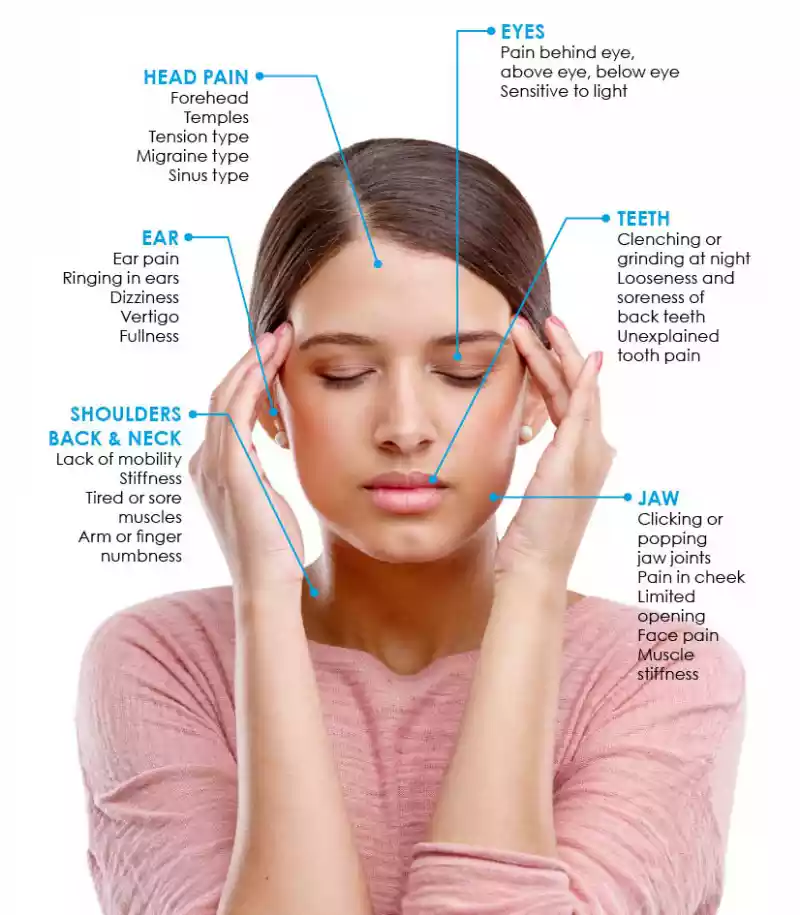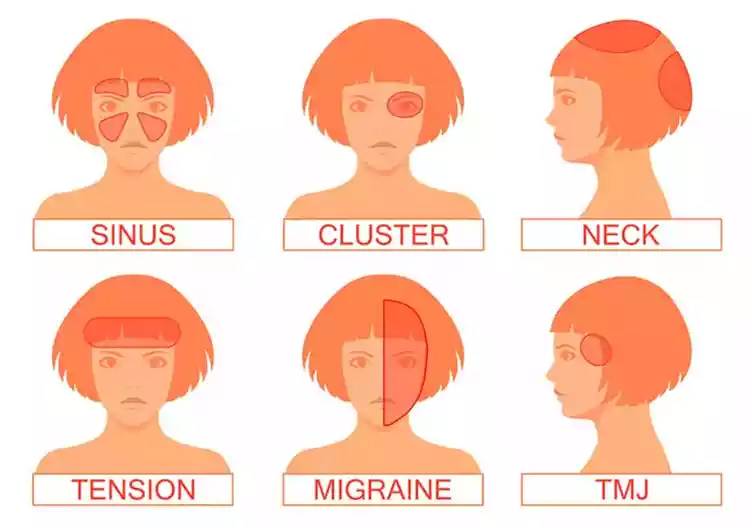TMJ Headache Causes Symptoms Treatment
If you experience frequent headaches, you may have wondered about the cause. One possible source of headaches is the temporomandibular joint (TMJ), which connects the jawbone to the skull. When the TMJ isn’t functioning correctly, it can lead to headaches, as well as other symptoms. In this article, we’ll explore the causes and symptoms of TMJ headaches, and how chiropractic care can help.
Causes of TMJ Headaches

TMJ headaches can arise from a variety of sources. Some of the most common causes include:
- Misaligned bite: When your upper and lower teeth don’t fit together correctly, it can put undue strain on the TMJ, leading to headaches.
- Teeth grinding: Grinding your teeth (bruxism) can cause tension and inflammation in the TMJ, leading to headaches.
- Stress: Stress and anxiety can cause muscle tension throughout the body, including in the jaw muscles, leading to headaches.
- Trauma: A blow to the head or face can damage the TMJ and lead to headaches.
Symptoms of TMJ Headaches
TMJ headaches can manifest in a variety of ways. Some common symptoms include:
- Pain: TMJ headaches are often characterized by pain that radiates from the jaw to the temples, forehead, or back of the head.
- Clicking or popping: You may hear a clicking or popping sound when you open or close your mouth.
- Limited range of motion: You may find it difficult to open your mouth wide or move your jaw from side to side.
- Tension: You may feel tension in your jaw or temple muscles.
Treatment for TMJ Headaches
If you’re experiencing TMJ headaches, there are a few different treatment options available. Here are some of the most effective treatments:
- Chiropractic care: Chiropractors can perform adjustments to the TMJ and spine to relieve tension and improve alignment. This can reduce inflammation and pain in the TMJ, leading to fewer headaches. If you’re searching for a chiropractor near me, consider looking for a provider with experience treating TMJ headaches.
- Mouthguards: If you grind your teeth at night, a mouthguard can help prevent damage to the TMJ and reduce headaches.
- Stress management: If stress is a contributing factor to your TMJ headaches, finding ways to manage stress, such as meditation or therapy, can help.
- Medication: Over-the-counter pain relievers or muscle relaxants can help alleviate TMJ headache pain in the short term.
Finding the Best Chiropractor in Sydney for TMJ Headaches
If you’re seeking chiropractic care for your TMJ headaches, it’s essential to find the best chiropractor in Sydney. Here are a few things to look for when searching for a provider:
- Experience: Look for a chiropractor with experience treating TMJ headaches specifically. This can give you peace of mind that you’re receiving expert care.
- Reviews: Read online reviews from other patients to get a sense of the chiropractor’s bedside manner, professionalism, and effectiveness.
- Accessibility: Look for a chiropractor located conveniently near you, with appointment times that work with your schedule.
Conclusion
TMJ headaches can be frustrating and painful, but they don’t have to rule your life. By understanding the causes and symptoms of TMJ headaches and seeking effective treatment, you can find relief from chiropractic care.

